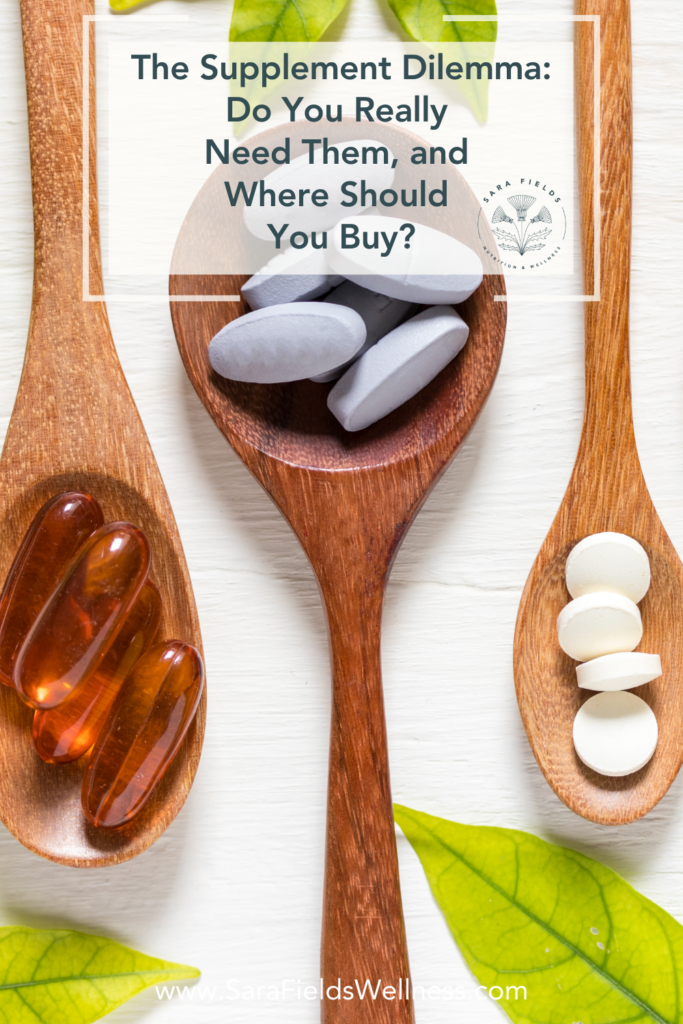
Supplements can be a loaded topic. Depending on who you ask, they’re either essential to healing or a total waste of money. Some people swear by them; others are convinced they’re just “expensive pee.”
So what’s the truth?
Let’s break it down.
Why I Use Supplements in My Practice
When I recommend supplements to a client, it’s never random. Each recommendation is carefully selected based on what we know about their body through a deep dive into symptoms, health history, and the results of functional testing. All with the intention of supporting the body’s ability to heal and function at its best.
Supplements can help:
- Replenish nutrients that are depleted or missing
- Support systems that are under-functioning (like digestion, detox, or the microbiome)
- Bring relief while we work on root causes
- Accelerate healing so we can get back to balance sooner
I tend to be fairly aggressive with supplementation in the beginning of a protocol — not forever, but for a focused phase of healing. Once we’ve addressed the deeper imbalances, I shift clients into a more sustainable maintenance routine with fewer products. The goal is always to simplify over time.
Not All Supplements Are Created Equal
This is the part that often gets missed. Supplements are not regulated like pharmaceuticals, and the industry is flooded with poor-quality products. The label might say one thing, but what’s actually in the bottle could be another story. Additionally, the marketing of what I call “shiny objects” is always in full force, which makes it tricky to know what you should actually be taking and what’s really a high-quality, effective product.
Common issues include:
- Inaccurate dosing or ingredients
- Contaminants or fillers
- Poor-quality ingredients
- Lack of third-party testing
- Expired products repackaged with new labels
One of the most important (and overlooked) aspects of supplementation is quality. Because if you’re taking something every day to support your health, don’t you want to know that you’re taking what you think you are and that it’s actually helping?
A Personal Story: When My Integrity Was Questioned
A while back, a client shared something that really shook me. Her doctor had looked at the supplement protocol I gave her and said, “This just looks like a money-making scheme.”
That comment hit hard. It made her question the work we were doing together. And it made me feel like my integrity was being questioned — not because I don’t welcome healthy skepticism (I do), but because that kind of blanket statement ignores the real care and strategy that goes into the recommendations I make.
It also dismisses the deep arsenal of scientific data that supports the use of researched, targeted nutritional supplements. For example, compounds like berberine (found in plants like barberry, goldenseal, and Oregon grape root) have been shown to help support healthy blood sugar levels. And quercetin, which occurs naturally in foods like apples and onions, has well-documented benefits for calming allergic responses and histamine-related inflammation.
So let me be transparent: Yes, I make a small commission when clients order supplements through my supplement dispensary. But I also pass on more than half of that discount to make them more affordable. I don’t recommend things to make money — I recommend things because they work.
Why I Trust Fullscript
There’s a reason I use a platform like Fullscript — not just for my clients, but for myself and my family too.
Here’s what Fullscript gets right:
- They order directly from the manufacturers (no shady third-party sellers)
- Supplements are stored in climate-controlled warehouses (crucial for things like probiotics, fish oils, and B-vitamins)
- Every product is vetted and comes from brands that prioritize third-party testing, ingredient sourcing, and Current Good Manufacturing Practices (cGMP).
- They offer a safe, easy-to-use platform where you can order with confidence
Plus, everything ships quickly and reliably — no expired bottles, damaged seals, or mystery sellers.
Bottom Line: If You’re Going to Invest in Supplements, Make Sure They’re Worth It
I never want anyone to feel like supplements are a substitute for foundational health practices like food, sleep, movement, and stress support. But when used strategically, they can be an incredibly helpful tool — especially when dealing with complex, chronic issues that need a little extra support.
If you’re currently using supplements (or considering them), I recommend ordering through a trusted platform like Fullscript. It’s what I use for myself, my family, and every client I work with.
Visit My Fullscript Dispensary
And if you ever have questions about what you’re taking or why, don’t hesitate to reach out. You deserve to feel empowered and informed about your choices, and to know that your money and your health aren’t going to waste.

leave a comment